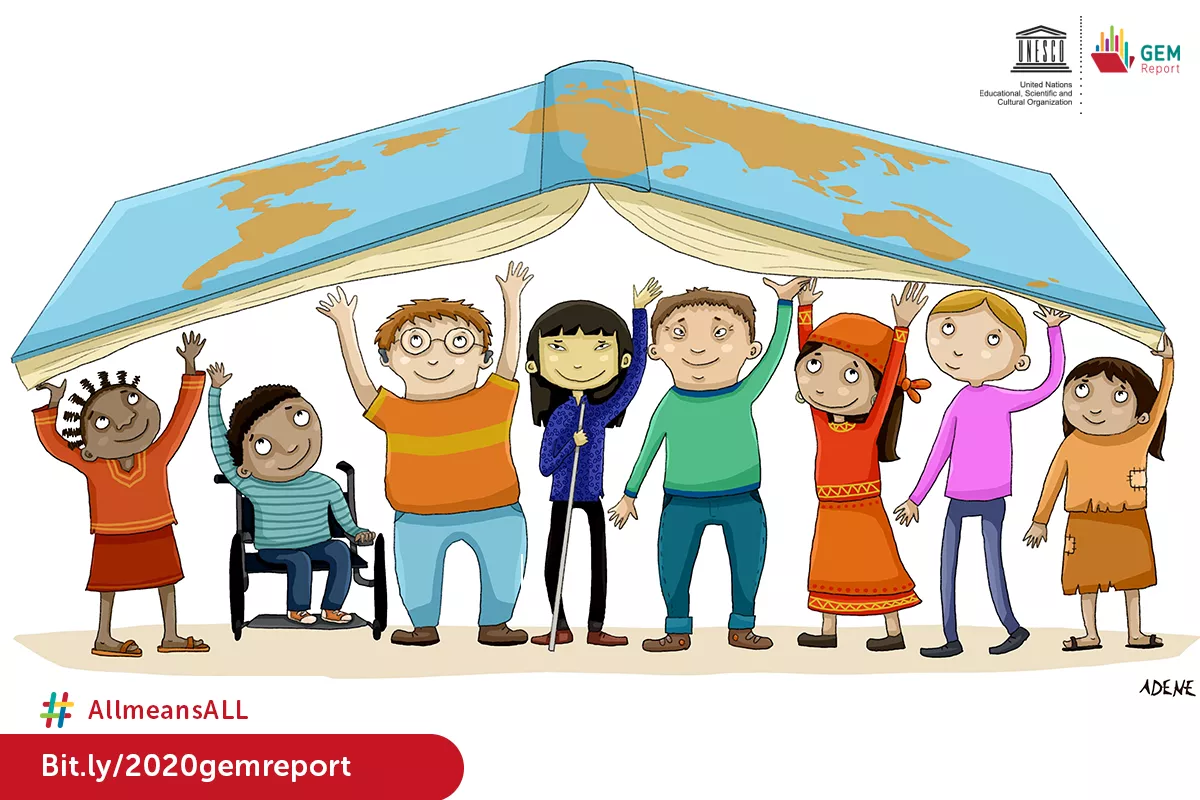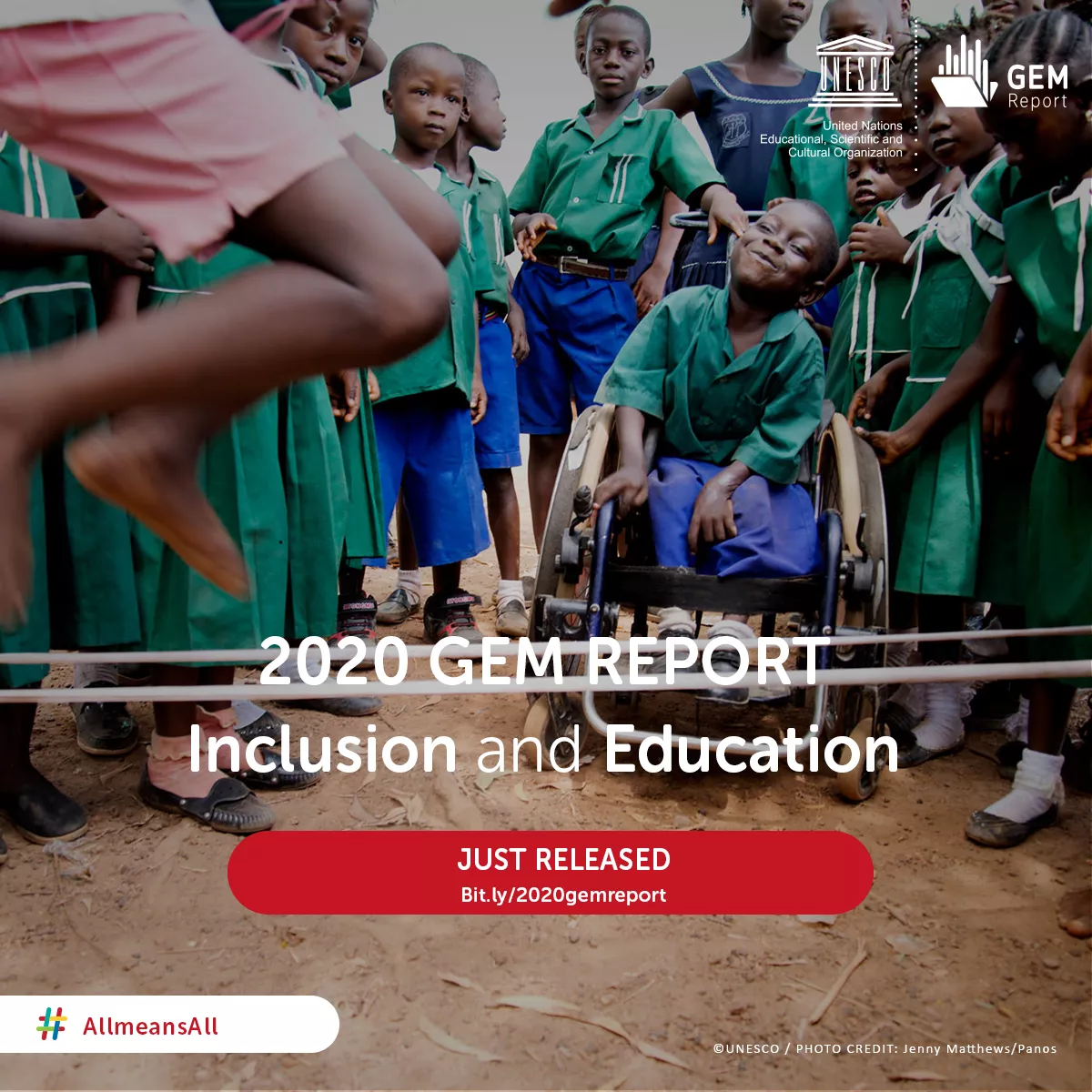Global education monitoring report, 2020: Inclusion and education: all means all

According to the latest UNESCO Global Education Monitoring Report (GEMR), Inclusion and Education – All means all, which was published on the 23rd of June 2020, 14 per cent of adults worldwide lack basic reading and writing skills. The reasons for this vary from missed early-years of schooling to the impact of conflict and instability, migration pathways, and lack of access to quality education in mother-tongue and first languages. The report reveals that those who are excluded from the education system at an early age often remain disadvantaged for the rest of their lives. In addition, fewer than 10 per cent of countries worldwide have laws ensuring full inclusion in education.
Although the report does recognize some progress in basic literacy skills, it found that women continue to have a lower proficiency in literacy compared to men. In addition, current projections show that the number of adults who have not completed primary school in Africa may remain above 10 per cent until the 2050s, even if universal primary completion is achieved by 2030. This data includes new estimates for 72 countries, including 21 countries whose previous national literacy rates were from 2010 or earlier.
The UNESCO Institute for Lifelong Learning (UIL) supports UNESCO Member States to build their capacities in policy development, programme delivery and literacy assessment. It does this by coordinating the work of the Global Alliance for Literacy within the Framework of Lifelong Learning (GAL), providing technical support at a country level, tracking progress in literacy development by co-chairing the Global Alliance to Monitor Learning, and providing knowledge on measurement and assessment of literacy developments worldwide.

CC BY-SA 3.0 IGO [7348]

